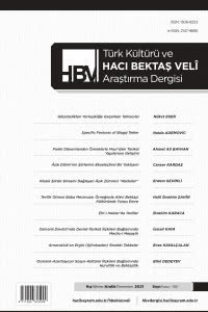Alevilikte Düşkünlük
Aleviler, hak ve adaleti sağlamak amacıyla birtakım kurallar koymuşlardır. Bu kurallara uymayanlara, suç işleyenlere ceza verilmiş ve bu cezaya da düşkünlük denilmiştir. Pir gözünde düşkünlük ve yol düşkünlüğü olmak üzere iki tür düşkünlük vardır. Pirin “Düşkünsün.” dediği kişi toplum içinde toplumla yaşantısını sürdürür fakat ceme gelemez. Yol düşkünlerinin ise, bulunduğu ortamda selam verilmez, onların selamı alınmaz, düğünde bayramda dahi topluma konulmaz, malı mala katılmaz, cenazesi olsa darı çekilmez. Dedesi gelene kadar toplumdan dışlanır. Yol düşkünlerine bir yıldan on iki yıla kadar topluma katılmama cezası verilir. Düşkün olan kimseler verilen cezanın yılı dolunca dedelerine giderek düşkünlükten kurtulmak için dedeye danışırlar. Dede ileri gelen canları toplar ve canlar da münasip görürlerse “düşkün cemi” düzenlenir.
Poverty in Alevism
Alevis have made some rules to make certain right and justice. Punishment is given to those who not follow the rules and commit crime and this punishment is called indulge. Indulging in the eyes of the Pir and manner indulging are two types of indulging. The person who are called indulging by Pir lasts his/her life in society with community but s/he cannot go to cem. Manner indulging also are not greeted in the community, they are not saluted, they are not participated in society even in weddings and feasts, their goods are not added to goods. This person is excluded from society until her/his Dede comes. Indulgents of are given punishment of not participating in community from one year to twelve years. Indulgent people ask for advice to their Dedes to get rid of indulging when the punisment is over by going their Dedes. Their Dedes collect leading Cans and Cans prepare indulgent cem if they find it appropriate.
